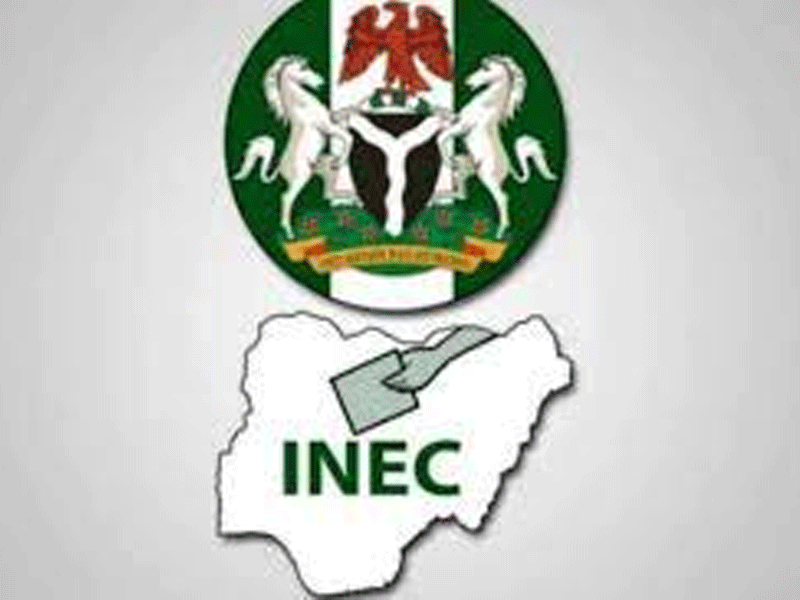
The Independent National Electoral Commission (INEC) has advised the media to be unbiased and avoid fake news in reporting electoral process.
The Chairman of INEC, Prof. Mahmood Yakubu gave the advice at a two-day workshop on Election Reporting, Ethical Practices, Safety and Conflict Sensitivity in Election Coverage on Monday in Akwanga, Nasarawa State.

The workshop was organised by INEC in collaboration with the Development Alternatives Incorporated (DAI) for INEC Press Corps.
Yakubu, represented by INEC National Commissioner And Chairman, Information and Voter Education Committee, Mr Sam Olumekun, also called on the media and political parties to be conversant with constitutional mandate of the commission.
He said that the commission would deploy its Bimodal Voter Accreditation System (BVAS) to authenticate the Permanent Voter’s Card (PVC) and upload polling unit results to the INEC Result Viewing Portal (IREV) in the Nov. 11 governorship elections.
Yakubu said that the media must be familiar with the Constitutional mandate of the commission, and the roles and powers ascribed to it.
“They must therefore strive to understand the intendment and nuances of the powers granted to the Commission by the Constitution and the Electoral Act that are expressed in subsidiary legislations, including the INEC’s Regulations, Guidelines and Manuals,” he said.
Yakubu also called on political parties participating in the Nov. 11 off-cycle governorship elections in Bayelsa, Imo and Kogi to critically study and pay attention to the provisions of the constitution.
He also urged them to pay attention to the Electoral Act, the Police Act, and the Public Order Act for the proper and peaceful conduct of political campaigns, rallies and processions.
Yakubu said that “a political campaign or slogan shall not be tainted with abusive language directly or indirectly likely to injure religious, ethnic, tribal, or sectional feelings.
“Abusive, intemperate, slanderous, or base language or innuendoes designed or likely to provoke violent reactions or emotions shall not be employed or used in political campaigns.
“Let me also remind the media of their constitutional obligations. State apparatus, including the media, shall not be employed to the advantage or disadvantage of any political party or candidate at any election.
“In other words, equal coverage and visibility shall be allotted to all political parties by all public print and electronic media organisations.
“The same applies in equal measure to privately owned media organisations subject to payment of appropriate fees,” Ajayi said.
Earlier in his own remarks, INEC National Commissionber, Prof. Kunle Ajayi, appealed to the media to be objective and unbiased in their reporting as well avoid fake news, inflammatory and sensational news.
Ajayi said that fake news posed a serious threat to the election process in Nigeria.
“The Commission’s distasteful experience with fake news in the 2023 General Elections has shown that, if not nipped in the bud, fake news can become the bane of election management in Nigeria.
“The alarming prevalence of misinformation, ‘fake news’, hate speech, and the weaponisation of disinformation has become very worrisome to the Commission.
“Disinformation is used to provoke religious, political and tribal sentiments in an already polarised society such as ours, especially during election season, which is often the leading cause of electoral violence and uprisings,” he said.
Ajayi added that election-related disinformation has become a major strategy used by nefarious individuals and groups in the political space to manipulate the general public to their advantage.
He said that was being done regardless of the consequential effect such propaganda may have on the peace and stability of the electoral process and the country at large.
“Consequently, to create an environment of peace where the electorate feels safe and free to come out to exercise their franchise on election day, we, therefore, appeal to the media in general to be objective and unbiased in their reporting and avoid fake news and inflammatory and sensational news,“ he urged.
Ajayi said that the press must commit to delivering thorough, verified and unbiased information, pulled from credible sources to the public.
“At the same time, they must refrain from reporting information that encourages divisions or antagonistic discussions, which are likely to incite violence or endanger social life.
“In essence, in reporting the activities of the commission; pre-election, election, and post-election activities, we plead with the media to be factual, objective and professional in their reportage.
“Journalists covering the elections should on no account, interfere with the processes and procedures of voting or in any way distract the attention of Presiding Officers in the performance of their duties.
“On our part, as an electoral body, we will remain transparent in all our activities and consequently communicate all relevant information to the media.
“When necessary, feel free to fact-check any considered grey areas for clarity from the Voter Education and Publicity (VEP) Department of the Commission,“ Ajayi said.
The Team Leader, Development Alternative Incorporated (DIA) in Nigeria, Rudolf Elbling, described the media as essential to democracy, saying democratic election without journalists is impossible.
“The media acts as a crucial watchdog to democratic elections, safeguarding the transparency of the process.
“To fulfil their roles, journalists need to maintain a high level of professionalism, accuracy and impartiality in their coverage.
“Nigerian journalists are well trained professionals, but it is always worthwhile to come back to certain principles which are crucial to a credible and peaceful election process,” he said.
Elbling also called for adequate protection of journalists on election duty.
“Nigerian Elections can be dangerous for journalists, tense and sometimes violent campaigns or announcement of results can endanger those trying to report honestly and accurately.
“The responsibility for protecting the physical security of everyone within its territory rests with the government,” he added.
The News Agency of Nigeria (NAN) reports that the workshop is being attended by journalists from different media houses. (NAN)


